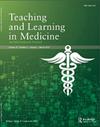社区合作开发 "定居殖民主义与健康的社会决定因素 "课程。
IF 1.8
3区 教育学
Q2 EDUCATION, SCIENTIFIC DISCIPLINES
引用次数: 0
摘要
美国印第安人/阿拉斯加原住民(AI/AN)社区继续受到健康社会决定因素的影响,存在着健康差距和不良的健康结果。定居者殖民主义理论为理解影响健康社会决定因素的结构以及由此产生的健康差距提供了一个框架。西方生物医学和医学教育与殖民定居者殖民主义的长期存在有牵连,因此,土著医学教育工作者和领导人呼吁加强对影响土著居民健康的结构性和社会决定因素的教育和了解。一个重要的方法是以社区为基础进行课程设计。通过与社区领袖和专家合作,我们确定了在定居殖民主义背景下开设健康课程的必要性,并将重点放在复原力和由社区主导的改善健康和护理的努力上。我们与原住民领袖和教育工作者一起,开发了一套独特的课程,重点关注定居殖民主义、健康的社会决定因素以及我们工作所在的原住民民族的固有资产。该课程专为非原住民学习者和临床医生开发,旨在帮助他们了解当地社区健康不平等的历史和政治根源。当地教育工作者帮助制作了一系列视频讲座,并在 10 个领域开展了阅读和体验式学习活动,概述了定居者殖民主义及其如何影响健康的社会决定因素。我们的教育模式借鉴了社区的优势和资产,可以改善健康状况,提高学习者对美国原住民/印第安人特殊需求的理解。我们希望我们的合作方式能够改善非本地学习者与服务提供者和社区成员之间的关系。本文章由计算机程序翻译,如有差异,请以英文原文为准。
Community Collaboration to Develop a Curriculum on Settler Colonialism and the Social Determinants of Health.
American Indian/Alaska Native (AI/AN) communities continue to experience health disparities and poor health outcomes, which are influenced by social determinants of health. The theory of settler colonialism provides a framework for understanding the structures that affect social determinants of health and the resulting health disparities. Western biomedicine and medical education have been implicated in perpetuating settler colonialism, and as a result Indigenous medical educators and leaders have called for increased education and understanding of the structural and social determinants of health affecting Indigenous populations. One important method is through community-based approaches to curriculum design. In collaboration with community leaders and experts, we identified the need for a curriculum on health in the context of settler colonialism, with a focus on resilience and community-directed efforts to improve wellness and care. Alongside Indigenous leaders and educators, we developed a unique curriculum focused on settler colonialism, the social determinants of health, and the assets inherent to the Native Nation where we work. Developed for non-Native learners and clinicians, the curriculum is designed to help provide context for the historical and political etiologies of health inequities experienced by the local community. Local educators helped shape a video lecture series associated with readings and experiential learning activities in 10 domains, providing an overview of settler colonialism and how it affects the social determinants of health. Our model of education draws upon the strengths and assets of communities and can improve health outcomes as well as learners' understandings of AI/AN-specific needs. We expect that our collaborative approach results in improved relationships among the Non-Native learners and providers and community members.
求助全文
通过发布文献求助,成功后即可免费获取论文全文。
去求助
来源期刊
CiteScore
5.20
自引率
12.00%
发文量
64
审稿时长
6-12 weeks
期刊介绍:
Teaching and Learning in Medicine ( TLM) is an international, forum for scholarship on teaching and learning in the health professions. Its international scope reflects the common challenge faced by all medical educators: fostering the development of capable, well-rounded, and continuous learners prepared to practice in a complex, high-stakes, and ever-changing clinical environment. TLM''s contributors and readership comprise behavioral scientists and health care practitioners, signaling the value of integrating diverse perspectives into a comprehensive understanding of learning and performance. The journal seeks to provide the theoretical foundations and practical analysis needed for effective educational decision making in such areas as admissions, instructional design and delivery, performance assessment, remediation, technology-assisted instruction, diversity management, and faculty development, among others. TLM''s scope includes all levels of medical education, from premedical to postgraduate and continuing medical education, with articles published in the following categories:

 求助内容:
求助内容: 应助结果提醒方式:
应助结果提醒方式:


